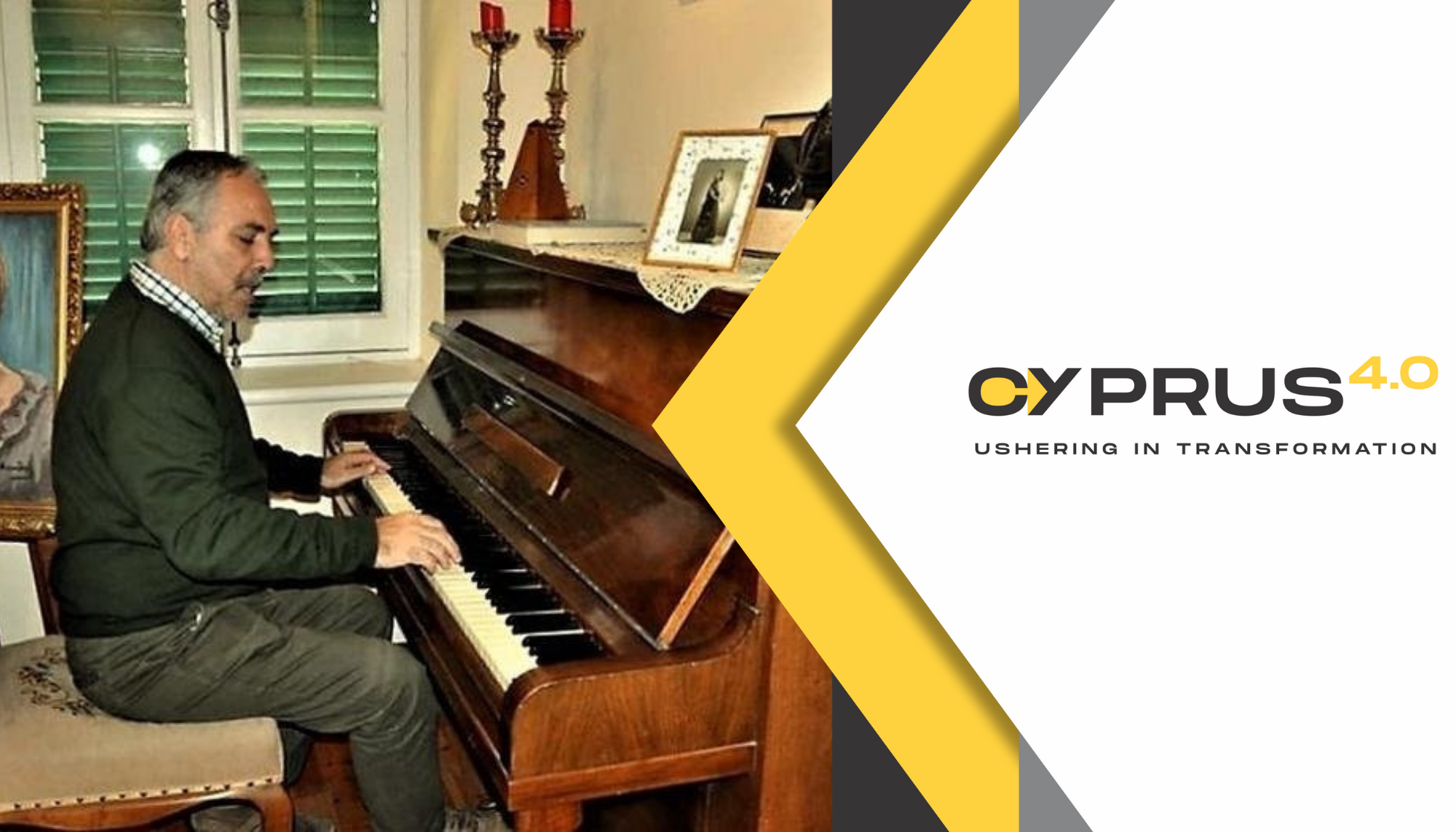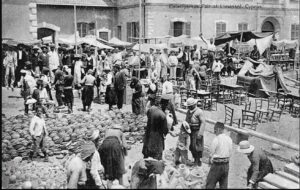Limassol is composed of 4 elements, according to cultural historian Prof. Mimis Sofocleous:
- Ochre: because all houses were once painted in this colour;
- The mandolin, which with the guitar, created the music of the Serenaders, the melodies of carnival songs, the sound of the city;
- Commandaria: The smell of Commandaria is the perfume that filled the streets of Limassol for centuries;
- Limassolians: The soul, the city’s wings are those who listen to the city’s call and fill it with their creative spirit.
Cultural historian Prof. Mimis A. Sofocleous is an expert on Limassol; he was among those instrumental in the creation of the city’s University of Technology, as well as for the creation of the Municipal Archives.
“It’s not surprising that Limassol has become a technology centre, and one for online business as well,” he comments. “Because Limassol has always adapted to business trends, and online business is no exception. Business culture is deeply rooted here, it is part of the creative spirit of the city. ”
It all started in 1881, when the British build the major pier in the city’s harbour. “The British wanted Limassol to be the Liverpool of Cyprus, and that is very much what happened as industry developed here.
For the British, Limassol had two advantages: Mining, and the surrounding mountains which made it easier to defend than Larnaca or Paphos. It soon developed the wine and minerals businesses, and shipping turned them into exports.”
So the culture and character of Limassol in recent history has always been linked to business, Sofocleous notes. “First it was agricultural products for export, and later factories arose with products for the European market.
“There was even a factory that used ice from the Troodos to make ice cream,” Sofocleous continues.
“For example, Limassol, was the producer or the best tobacco, but in the 1870s, growing tobacco here close to the city wasn’t economically viable, and also required massive water resources which were scarce, of course. So the cultivation of tobacco was moved to the mountain areas, and, closer to the city, began making wine.”
Similarly, to make the best use of water resources, Limassol was one of the first adopters of the windmill – what the Dutch call a “watermill” – to move water around and share out water among different places.
This kind of creative spirit led to the early adoption of technology, Sofocleous explains.
“Adaption is a fundamental part of human culture, regardless of the location. Yet some cultures resist adaption, while ours, in Limassol, embraces it.”
Sofocleous gives the example of products like carob and mastic. “At one time you could see carob fallen from the trees all over the island. Then we found ways to use it, in food, in medicine, in many different products. And we did the same with mastic.”
“We were among the first cities in Cyprus to adopt computer networks; we started as early as 1982. Computers then became endemic in nearly all businesses in the city, and since then, we’ve adopted changes like the internet and social media before the rest of Cyprus. This is actually the reason why Limassol became a centre for foreign exchange specialists – we had the infrastructure, and we soon developed the talent pool they needed.”
Because of its unique history, as cross-roads for different cultures, Cyprus was always able to adapt its talent pool. “Ever since the Venetians came. The Venetian officials had to be able to communicate in three languages. So Cyprus developed a pool of trilingual skilled workers to serve them. It’s the same thing with computer programming and development today; Limassol develops training for business needs rapidly. We had business schools teaching business skills like shorthand very early in the 19th century.”
The Masonic Hall of Limassol used to host these classes for workers, he notes.
“This is because the city authorities knew that they had to train these people, teach them to speak English, etc. Then, in the 20th century this kind of training adapted to the computer age.”
This is why the need for remote working, starting in March 2020, did not faze the Limassol business community.
“Covid-19 imposed its restrictions, but we adapted easily. People had already been doing nearly everything online. Lessons, shopping, selling, teleconferencing – we’d already been doing all that here in Limassol. We just got on with life and business,” Sofocleous says.
It’s just not been possible to work in Limassol without tech training, he adds. “Limassolians are accustomed to saying, ‘okay, we’re just not going to have the same kinds of jobs that we had in the past. So we learn and we change.”







Click here to change your cookie preferences